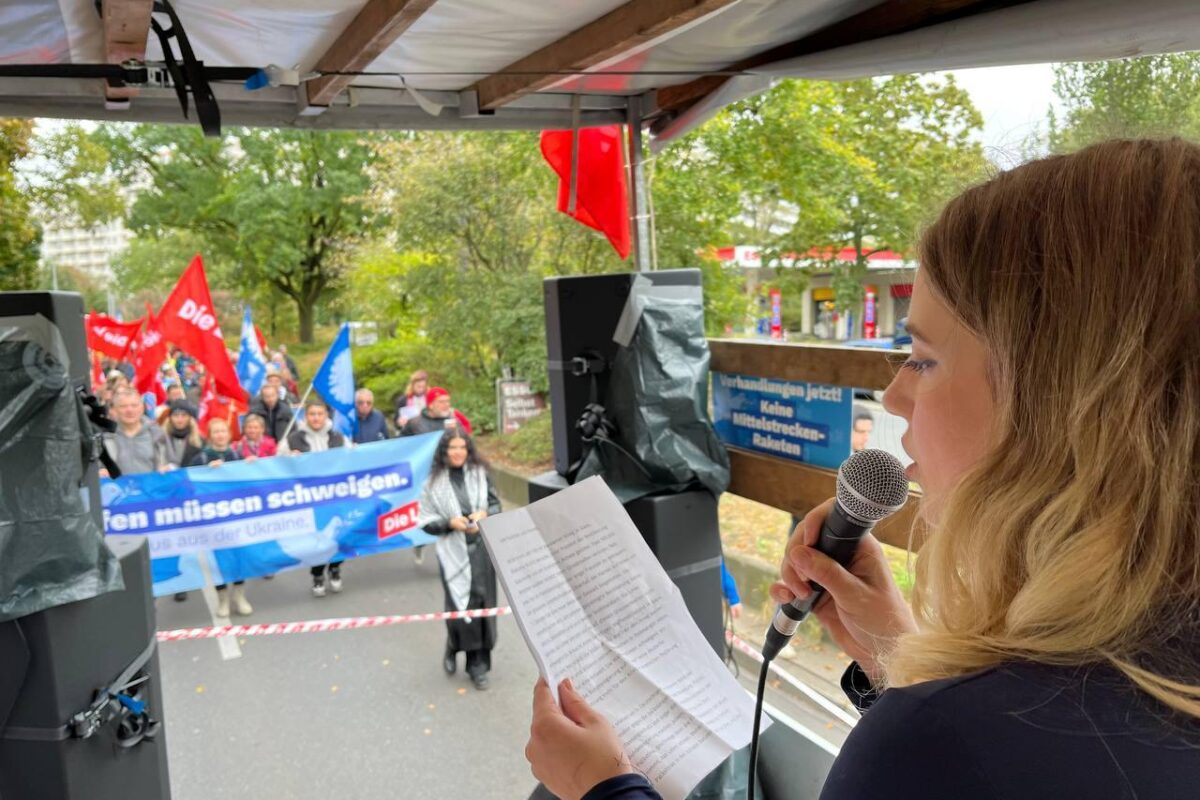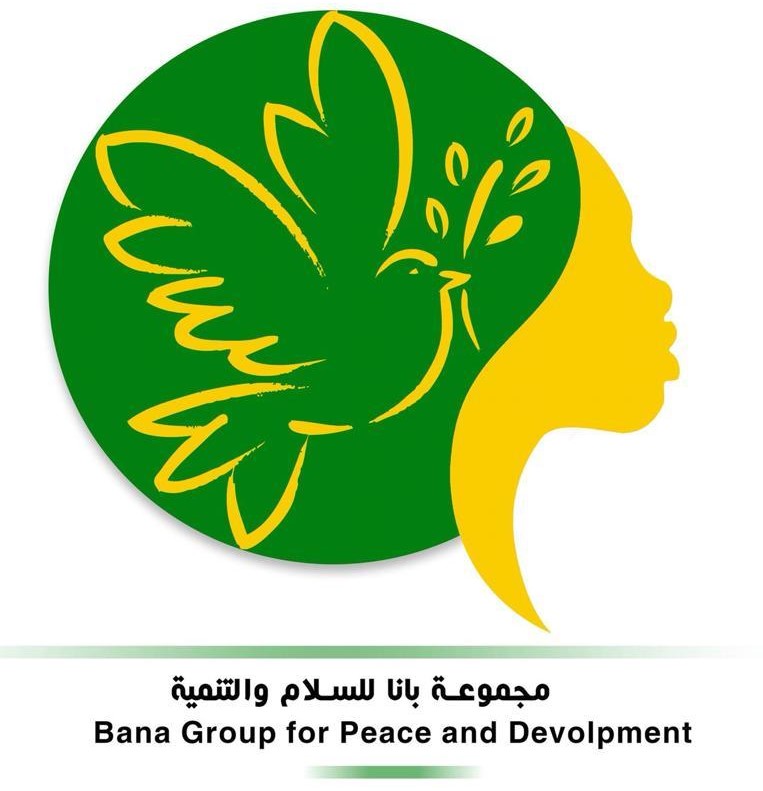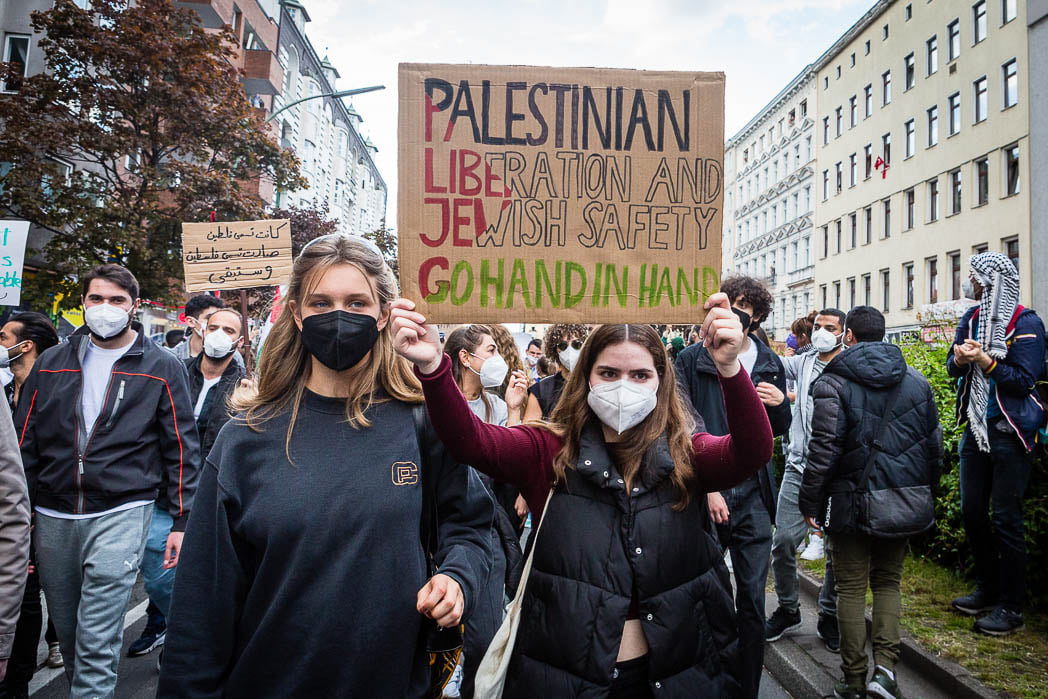Thank you for talking to us, Martha. Could you quickly say who you are and what it is you do?
My name is Martha Kleedorfer, and I am the chairwoman of die Linke in the district of Berlin Mitte. Mitte consists of Wedding, Moabit, Tiergarten, Gesundbrunnen, and alt-Mitte. I work a lot on the topic of housing politics and am a member of the local parliament.
A lot has happened in die Linke in the last couple of weeks. Recently, die Linke Berlin had their conference and there was a big discussion about antisemitism. What exactly happened there?
First of all, we had a really good debate. For example, a trade unionist from Berlin-Brandenburg came to speak about strikes by educators, and that was really strong. We also discussed a couple of other topics. And then later that evening, there was a motion about antisemitism from some people, including Klaus Lederer.
They particularly wanted to discuss “left-wing antisemitism”, which has been a big topic in Germany ever since October 7 last year. Robert Habeck, a leading Green minister, has been talking about “left-wing antisemitism”, as if it is the most important topic. This is when the AfD, a fascist party, is polling around 20%. In some parts of Germany, like Saxony or Brandenburg, they are even stronger, with 30%.
We thought that this doesn’t serve as a good enough analysis, either of antisemitism, or of the war on Gaza, so we suggested some changes to the text. Most of these changes were accepted by a majority of party delegates.
Lederer and his group got very angry that the text had been changed, and left the conference. One of them showed her middle fingers to the conference. The changed text then did not get the two-thirds of the vote it needed to be passed.
For people who don’t know who he is, who is Klaus Lederer?
Klaus Lederer is a former leader of die Linke in Berlin. He was Berlin’s Senator for Culture for six years, I think, and he was one of the mayors of Berlin.
The big headlines after the conference said that you personally accused Lederer of relativizing the Holocaust. What was that about?
One part of the text said that the Left should never underestimate the eliminatory antisemitism of Hamas, Hezbollah, and Iran. The term “eliminatory antisemitism” was first used by scientist Daniel Goldhagen in the 1990s. I don’t agree with Goldhagen’s ideas, but he proposed the idea that every German was an antisemite, and he used the term “eliminatory antisemitism” to characterize the German antisemitism which led to the Holocaust.
I don’t like this idea, but this is something which is being discussed in science and by historians.
There’s a very good book by Norman Finkelstein about Goldhagen’s thesis
I essentially said that I wouldn’t use that term that describes the genocide on Jews that Germans committed to characterize other groups. I said that, essentially, this is relativizing the Holocaust. I later even apologised for the very strong tone with which I said it, but they didn’t want to listen to that apology.
A week after the Linke Berlin conference, the party had its national conference where there was another discussion on Palestine. How did that go?
After the Berlin Conference, everyone was very scared about the national conference, worrying that this would all blow up. So everyone was trying to be very precise and very calm. There was a weird atmosphere at the conference that evening.
In the end, there was a compromise from the new chairperson, Jan Van Aken, who also lived in Tel Aviv for a couple of years and is very familiar with foreign policy. A majority of the conference voted for that compromise, and a lot of people were talking about Palestine in general. When we voted for the new party leadership, a lot of candidates were talking about the war on Gaza and Lebanon in their speeches.
What was in the compromise? Do you support it?
I voted for it at the conference, because I thought that at the end of the day it was a step in the right direction. For example, the text talks about the war on Gaza and Lebanon, and especially opposes that the German government is sending weapons to support Israel’s war.
It also strongly rejected antisemitism. What was new was that it talked about the International Court of Justice saying that a genocide is about to happen. We were finally able to acknowledge that in that text, which contains the word “genocide”. This is quite new for die Linke, which is very reluctant when it comes to talking about Israel’s war in Gaza, and is mostly trying to use very soft terms to describe the outrageous war that is happening.
So I thought that was a step in the right direction. At the same time, it was quite important for the part of die Linke that does not fully support the pro-Palestine movement that the part about antisemitism is in the text. It is right that there is no room for antisemitism in die Linke, but at the end of the day, they might use this to get people who they don’t like out of the party.
Nonetheless, significant parts of the Palestine movement point to die Linke supporting pro-Israel demos, and to various statements by Linke leaders, and say that even in the current compromise, die Linke is obsessed with a two-state solution – which is now dead – if it ever was a solution. They therefore argue that they don’t see die Linke as a partner. How would you address such concerns?
I do think that there’s a difference in what die Linke as a party says when it comes to the two-state solution. I also think that die Linke is one of only two major parties in Germany which doesn’t unconditionally support Israel.
There is a gap between what we say and vote for when we meet as a conference, and what the party does at the end of the day. For example, when leaders of die Linke go to a pro-Israel demonstration, that is not part of what we want as a party, and what is in the party programme.
This is one of the biggest problems that I see. We as a party should play a bigger role in the pro-Palestinian movement. We should be part of the movement, and we should support it.
There is a difference with some groups like Palestine Speaks when it comes to how we think of Israel as a state, but what we as a party want at this point is to stop the war and a permanent ceasefire, and this is something we can fight for together with the movement.
One of the results of the National Conference was that a number of known pro-Israel people, including Klaus Lederer, left the party. Why did they do that? And how does this change the balance of forces?
One day after the National Conference, Henriette Quade, a member of die Linke in Sachsen-Anhalt and also a member of the Parliament there, left the party. I think it’s actually quite interesting, because she said she supports sending weapons to Israel, but somehow she didn’t know that die Linke is always against sending weapons into areas where there is a war. She realized that there’s a big difference between what she wants and what die Linke wants. So she left the party.
Two days later, Klaus Lederer and some other very prominent people from die Linke also left the party. It does hurt that members are leaving Die Linke. In their statement, they didn’t talk as much about the national conference as about die Linke in Berlin. They said that they can no longer advocate for “strategic orientation” in Die Linke Berlin.
At the end of the day, it’s true, because the party has changed over the last couple of years. For example, when it comes to the unconditional support of a government that doesn’t change anything about the housing crisis in Berlin, I think there is a majority in die Linke in Berlin which does not fully support the politics of Klaus Lederer. I think there is a more nuanced part of die Linke which does not unconditionally support Israel anymore. That’s essentially why they left the party, I guess.
They want to stay in the parliament for die Linke though.
Even though they’re not party members?
Exactly, and that is quite interesting, because exactly one year before they left, Sahra Wagenknecht and other members of die Linke in the Bundestag left the party, and everyone – including Klaus Lederer and others – were saying they should give back their seats in the parliament. And now they’re doing the same. Die Linke Berlin has said last year that members of Die Linke in parliament, who left the party should give back their seats and we are saying the same now.
One of the other things that’s been happening is that there’s been more than one article in the right wing Axel Springer press, which has been specifically attacking you and four Linke activists in Neukölln, including Ramsy Kilani and Ferat Kocak. And strangely, they’re also attacking The Left Berlin, which has nothing to do with die Linke. Who is behind these attacks and why?
As I mentioned before, the Conservatives and bürgerliche Mitte [roughly speaking, the bourgeois middle of society] want to put pressure on the left for being, as they say, antisemitic, This is convenient for them, because it means that they don’t have to talk about the antisemitism that is happening on the right or the conservative parts of society.
So the Tagesspiegel and other journalists have been publishing those texts about us. At the end of the day, they don’t like left-wing politics, and they’re using every tool that they have. It’s very convenient to them that they think they can make this accusation of antisemitism against members of die Linke (which are not true), because at the end of the day, they want to destroy anti-capitalist politics.
Two of the people being accused – yourself and Ferat – are both trying to stand for parliament for die Linke at the next general election. Do you think you can rely on the support of the party?
Of course, there are people who have different opinions to what I said at the conference. But what die Linke in Mitte is saying is very clear. We have voted for proposals at our district conferences that are very clearly pro-Palestinian. What I say is backed by my party in my district, so I feel quite confident that it’s the right thing.
I live in Wedding, and when I walk around Wedding wearing a kuffiyah, I have so many nice conversations with my neighbors. And when I look around, there are so many apartments hanging Palestinian flags in this neighborhood. The working class lives here, and die Linke wants to make politics with the working class. It is the right thing to do to work together with the working class in our neighborhood, and this is exactly what we’re doing right now.
If you do get elected, MP, what do you think you can offer the working class of Wedding and Germany?
There is a huge problem here in Wedding that most of the people don’t actually vote. Even though many people have German citizenship, they don’t participate in elections. I think that’s because they don’t feel like any party is seeing their pain and anger, especially when it comes to Palestine and the way that German politics doesn’t acknowledge the suffering of Arabs.
What we want to do is to talk to our neighbours in this district. We want to give them a voice and not just be for them, but with them. This is exactly what you have to do, not just when we’re talking about Palestine, but also when we’re talking about rents and how inflation is going up, and how people can’t afford their lives any more.
It is so important that someone is finally listening to them, and if we as die Linke will finally be able to support our neighbourhood in finding a voice, that is exactly what we want to do.
How confident are you that die Linke can be an agent for change?
I think die Linke now has a chance to actually be the motor of change. When the party was founded in 2007 it was the voice of change when it came to fighting Agenda 2010, when working class people were being pressured. I really want to fight for die Linke coming back to that position.
In the last couple of years, we were not able to do that because we weren’t able to speak clearly about imperialism, but also about all those mistakes that the government is making. But what we have to do is to criticize what the government is doing from a socialist perspective. There are multiple injustices which are happening, including the German support for the war on the people in Gaza and Lebanon. So I really do hope that now we are finding that clear voice again.




